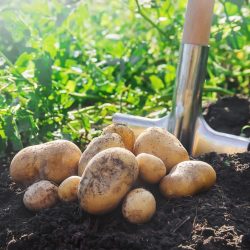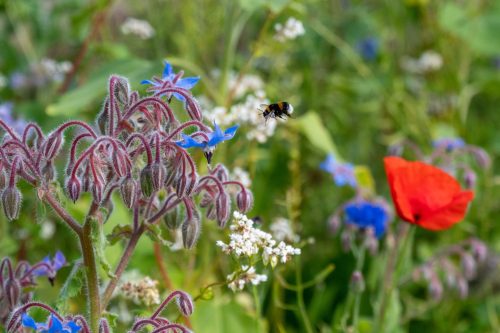What is organic farming?
“Wherever possible, we choose sustainability!”
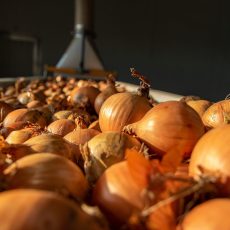
Why organic?
Respect for nature. Being kind to our planet. No use of pesticides. We all get certain ideas or associations when we hear the word organic.
But what does it entail, exactly?
Organic farming trusts the ecological processes, biodiversity and local cycles that are already present on the land. Soil health is what matters most for growers, particularly since organic growers are not allowed to use chemical plant protection products or fertilisers.
That’s why organic farming combines tradition, science and innovation.
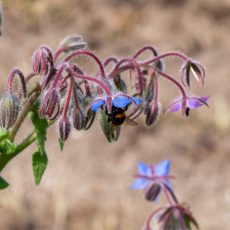
How can I recognise organic products?
“Organic vegetables are easy to identify by the term “organic”, which the European Union legally protects. Due to the protected nature of the term “organic”, organic products are controlled and tracked, starting with the grower.
For example, BioQrops is certified under Skal number: 111660 NL-BIO-01; you will find this number on all the vegetables supplied by BioQrops. “
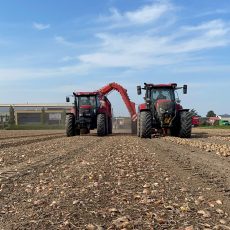
Traditional agriculture
Traditionally, agriculture uses crop rotation, which means that different crops are rotated on a plot of land. At BioQrops, this means that crops alternate every year with a broad rotation cycle, during which cover crops such as lucerne, grass and clover are cultivated intelligently. The soil on which the crops grow becomes fuller and richer in nature because the soil is given a chance to rest to recover from more intensive crops.
In collaboration with local growers, BioQrops is working on initiatives such as the creation of a connecting zone of flower borders to help preserve the insect population.
BioQrops’ organic farming vision supports these local collaborations.
of onions
of carrots
of potatoes
of ginger
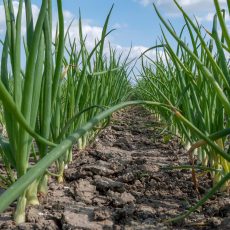
Innovation and agriculture
Innovations in organic cultivation have exploded in recent years. Using technical developments such as hoeing and weeding machinery can significantly reduce weed pressure. This contributes to higher yields and improved quality.
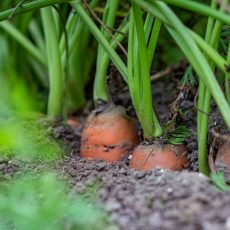
Organic farming and technology
Fortunately, technology is always evolving. Working with GPS and camera recognition makes it possible to program machines to flawlessly separate the crop from the weeds. It is BioQrops’ ambition to use weed robots in the future. We are already carrying out practical trials with these forms of weed control.
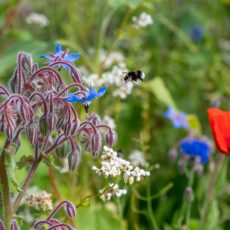
Natural enemies
It should be clear by now that organic farming does not use chemical crop protection agents. To protect crops from thrips (thunder flies) and other threats to field crops, natural enemies can be used.
Natural enemies are living organisms, including insects, bacteria, and fungi. These organisms are already present in nature. For organic growers, it is important that these organisms develop at the right times.
BioQrops keeps a close eye on the latest developments in this area and is currently running practical trials to combat thrips with Faselia, for example. This plant attracts many natural enemies of thrips in onions. Thrips can be controlled in a natural way by planting flower borders with Faselia in the middle of onion plots.
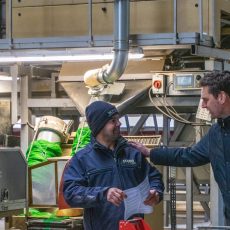
Labour and agriculture
Agricultural innovations are generally designed to reduce costs. As a result, labour is also becoming a significant bottleneck in agriculture. Since organic farming deploys more seasonal workers, the current line of innovations is aimed at reducing dependence on people and applying more automation. Technical innovations such as the weed robot are also in line with this aim.
Organic vegetables and storage
Shelf life is important in organic farming as well. A healthy product is crucial in that regard.
For the storage of our field crops, BioQrops uses several options such as cooling and condensation drying. We find the best storage options for each product, plot and grower.
Naturally organic
starts with choosing the right variety
Innovations in seed-breeding and the selection and choice of robust varieties (high-resistance varieties) are crucial to increasing the yield of organic vegetables. After all, the yields of organic crops per hectare are generally lower than those of conventional crops.
Because the varieties have better resistance to adverse specific climate conditions, diseases and other influences, growers can be more confident of a good yield and a healthy product.
Together with the industry, BioQrops is examining solutions for robust varieties.
If you would like more information on specific crops,
don’t hesitate to contact us.
